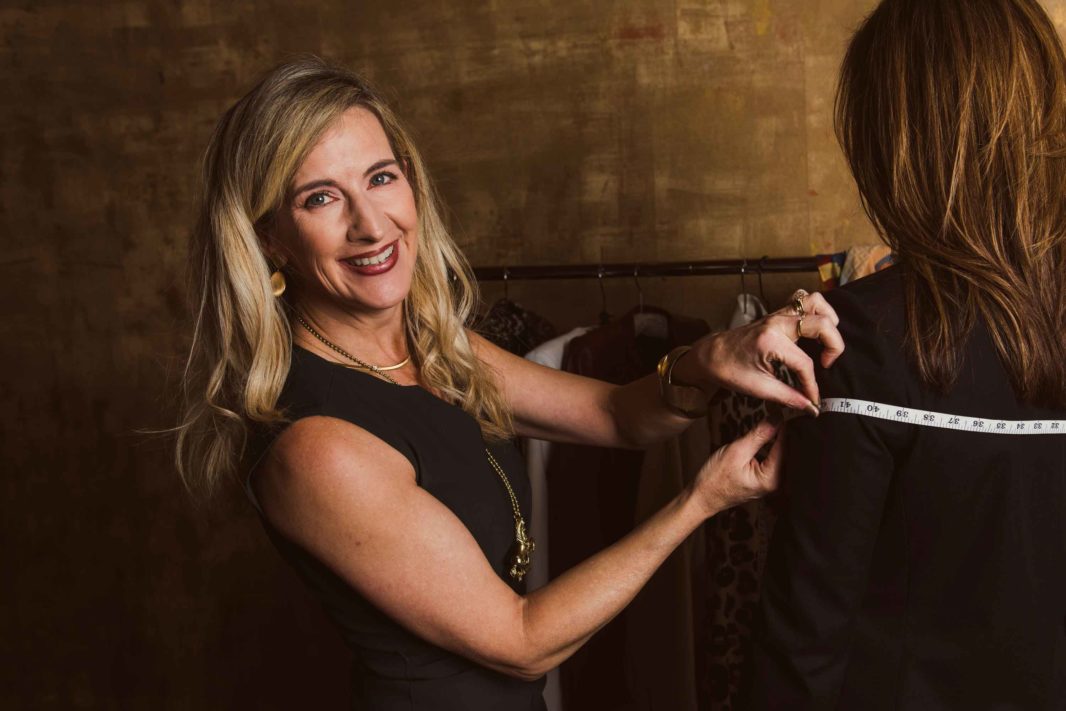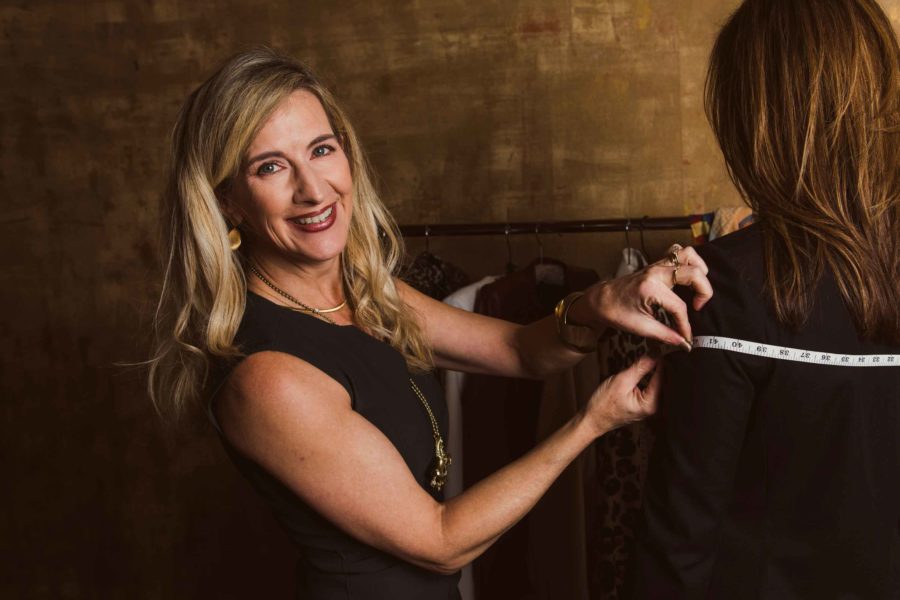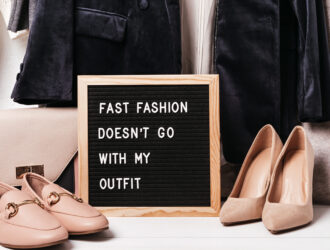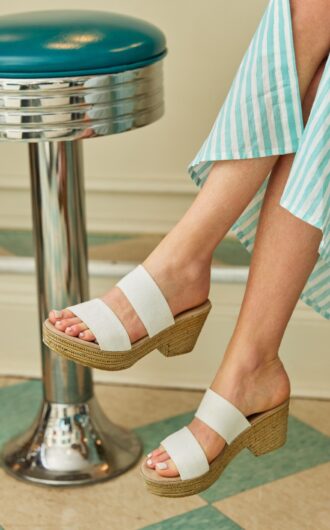
Photo credit: Lisa Czech Photography
Aricia Symes-Elmer spent years working on the business side of the fashion industry before striking out on her own with Unfoldid
Aricia Symes-Elmer approaches fashion as though it’s a science — with good taste to boot. With her Boston-based company Unfoldid, Symes-Elmer works with men and women who don’t particularly enjoy shopping, who need help styling themselves, or who simply do not have time to figure out what to wear every day.
By curating a wardrobe based on a client’s measurements, body structure, and complexion, Unfoldid brings the science. By carefully shopping and bringing the pieces directly to your home or office, stylists provide efficiency and ease.
Symes-Elmer takes an empowering approach to fashion, a space in which many women tend to feel intimidated or pressured to fit conventional beauty standards. “If we’re spending money on clothing, the clothing should be doing the work for you. Not the other way around,” she tells Exhale.
Of course, it’s not just about the practicalities, fashion should be joyful, Symes-Elmer says. “I love working with women and seeing that sparkle in their eye when they realize how great they can look.”
Keep reading for more on Symes-Elmer’s journey into creating her own business, her styling methods, and how she has been able to find the right work-life balance as a mother of three.

Exhale: How did you make your way into the fashion industry with an academic background in International Business and Asian Studies?
Symes-Elmer:When I went to school (at the University of Vermont), I went for international business, because my father was an entrepreneur, and I had an interest in it. I also became very interested in Asia and studied abroad in China and began learning Mandarin. I combined those interests after school and worked for a shoe manufacturer in Taiwan, where I lived for two and a half years.
I came home from Asia and ended up going to Stern Business School at New York University for a Master’s degree in marketing. My husband and I moved to Europe after I graduated, and I ended up working in the privatization of women’s clothing store chain in Croatia.
I’ve always loved fashion and my mother taught me how to sew, so it’s something I enjoy and was able to combine my international business experience with.

Part of Unfoldid’s mission is bringing wellness to clients. What does styling and fashion have to do with wellness?
Everyone has to get up and get dressed every single day but not everyone feels good about that process and what they wear throughout the day.
When it comes to styling, we tend to come at it from an emotional place, but there is so much you can learn that we can come in and teach you. Once you change your mindset around that, and learn what works for you, dressing is so much more fun, relaxing and no longer gets in the way of the rest of your life.
As stylists, one of our missions is to take the stress of what to wear off your plate. With a properly built wardrobe, you never have nothing to wear. How great is that?

How do you merge science and art to create the perfect wardrobe for clients?
Once you understand the science, you can have so much more fun with the art and creativity of it.
Whenever you work with us, you [tell us about] your silhouette, measurements, budget, personal style and more. Your physical structure is the foundation and that includes your bone structure. Your bone structure tends not to change as you age and even throughout weight changes. We look for colors that work best on you, what colors wash you out or what colors really rosy up your cheeks.
As Coco Chanel said, “Clothing is architecture.” For example, if you want to offset broad shoulders, you wouldn’t wear shirts with horizontal stripes. You would wear V-neck cuts to break up the shoulder line.

In what ways can style be used as an empowerment tool for women?
Empowerment and style are intertwined. We all have different body types, and they’re all beautiful in their own way. It’s about picking out the clothes that work for you, instead of picking pieces that are just trendy. It’s never your body that’s the issue, it’s the piece of clothing.
At Unfoldid, we try to solve the problem of clothing getting in the way of a client getting a job done or enjoying their day.

What advice would you give to other women entrepreneurs looking to balance their business and life priorities?
My advice is to consider life balance. You can have that as an entrepreneur if you make that a priority within your business plan. My business fits the flexible lifestyle I wanted — styling is appointment-based.
I wanted to re-imagine the idea of work schedules by allowing members of my team the leadership to get the job done when it works for them, as long as they meet the deadline. Some people work at 2 a.m. because they’re up with their baby and they’re able to write something for the business, and I go in and proofread it the next morning when it works for me. I’ve built the business that way, so each of us can have the lifestyle, as well as work together.
I have three boys, and I’ve been able to spend time with them. I am also on the board of The Greater Boston Stage Company. It’s important to me to do volunteer service and bring arts to the community.
My piece of advice would be: Don’t worry about what other people are doing. In this age of FOMO (fear of missing out), you can easily lose focus. But, you have to stay on task with what your mission is.



 5 min read
5 min read


